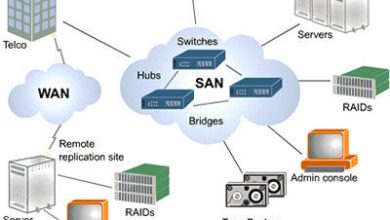Kotlin vs. Java for Android App Development: Which is the Better Option?

The Android platform provides two programming languages, Kotlin and Java, which can be used to create Android apps. Both these languages have their own sets of advantages and disadvantages when it comes to app development, and you’ll need to decide which language to use based on your specific needs and requirements. This article will look at the similarities and differences between Kotlin and Java and help you choose the right language for your next Android app project.
Kotlin Overview
Kotlin is a statically typed programming language that runs on the JVM and can be used to develop Android apps. It is fully compatible with Java, so you can use all existing Java libraries in your Kotlin code. this is a more concise and expressive language than Java, which makes it easier to write code that is easy to read and maintain.
This programming language also has null safety built into the language, which helps prevent NullPointerException errors. Kotlin was developed by JetBrains, who created IntelliJ IDEA – one of the most popular IDEs (Integrated Development Environment) available today. Since then Kotlin has been backed by Google and is supported by major companies like Netflix and Pinterest. It’s worth noting that Android Studio 3.0 now supports Kotlin out-of-the-box, meaning developers don’t have to download anything additional to start using this new language. In terms of performance, some studies have shown that Kotlin is actually faster than Java due to its conciseness. Other benefits include making it much easier for beginners or those coming from other languages like JavaScript or Ruby since they will already be familiar with the syntax and structure of the language when they learn Kotlin.
Another benefit is that it reduces boilerplate code, which means less time spent on tedious work. Finally, many developers claim that Kotlin reads like English because of its intuitive features such as infix functions.
Detailed Blog: Kotlin App Development Tips
Java Overview
Java has been a popular programming language for many years now. It is widely used in both web and software development. Android app development is no exception. Many developers choose to use Java for Android because it is a powerful and versatile language. However, Kotlin has become a viable alternative in recent years.
Let’s take a look at the pros and cons of each language to see which one is the better option for Android app development services. – One of the major benefits of using Java is that it integrates seamlessly with other languages such as C++, Python, JavaScript, and Ruby. If you have another codebase you need to integrate with that uses one of these languages then Java will be a good choice. – One downside to using Java is that there are some verbose constructs which can make code difficult to read. In contrast, Kotlin has more concise syntax so it’s much easier on the eyes!
Benefits of Kotlin over Java
- Kotlin is a more concise language than Java, meaning that you can write less code and achieve the same results. This can lead to fewer errors and more maintainable codebases.
- Kotlin is null-safe, meaning that it can help prevent NullPointer Exception errors, which are common in Java codebases.
- Kotlin offers features like data classes and sealed classes that Java does not have, making it a more powerful language overall. 4. Kotlin has a large library of extensions available on its site, while Java has none. Extensions add functionality to existing APIs without breaking compatibility with previous versions of the API or introducing additional dependencies. For example, Kotlin comes with extension functions to make concatenating strings easier by adding operator overloads like + and +=.
In contrast, Java developers must resort to using multiple string Builder objects if they want concatenation capabilities without having to create their own extension methods.
Likewise, Kotlin also provides operators for manipulating collections such as map(), filter(), groupBy(), etc., whereas Java users must use an external library like Guava.
Disadvantages of Kotlin over Java
Kotlin may be a newer language, but that doesn’t mean it’s better than Java for Android development. In fact, there are several disadvantages of Kotlin compared to Java.
First, Kotlin doesn’t have as much support from the Android community as Java does.
Second, Kotlin has a smaller pool of developers to choose from when you’re looking to hire someone to help with your project.
Third, Kotlin can be more expensive than Java because it’s not as widely used. Fourth, there’s no single IDE in the world that works best for both languages. If you want to use Kotlin and an IDE like Eclipse or IntelliJ IDEA, then you’ll need two different plugins in order to switch between languages on the fly.
Conclusion
When it comes to developing Android apps, there are two main options: Kotlin and Java. Both have their pros and cons, but ultimately, it comes down to personal preference. If you’re looking for a more retail IT solutions, then Kotlin may be the better option for you. However, if you’re more comfortable with Java, then that may be the route you want to take.





